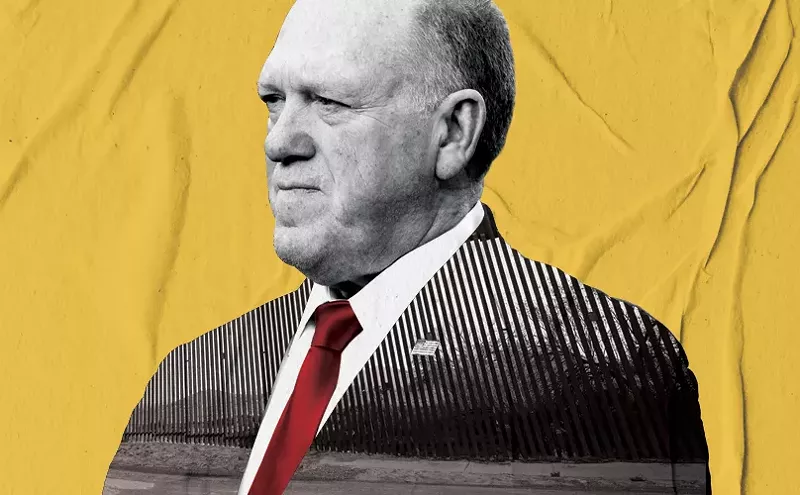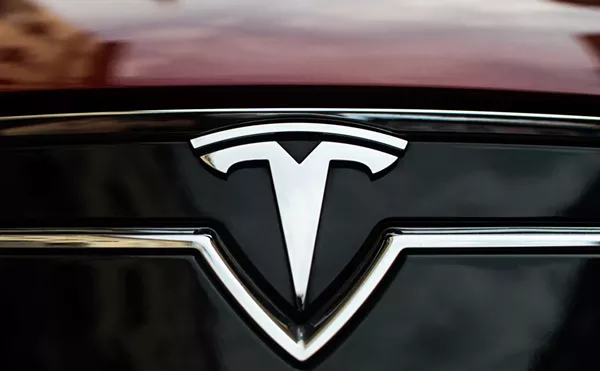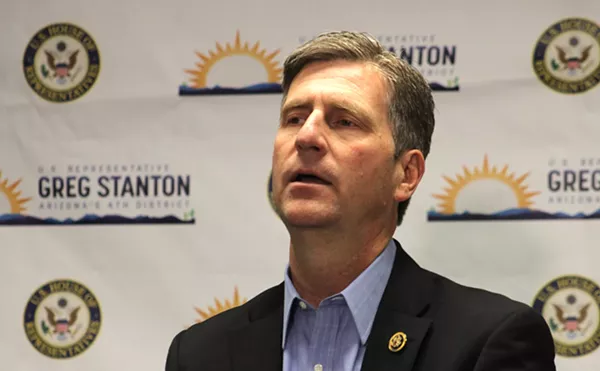Environmentalists are celebrating an order from a federal court that the state of Arizona must comply with the Environmental Protection Agency’s pollution-reduction plan for coal-fired power plants in the state.
At the center of the case is the cloud of haze that often hangs over the Grand Canyon and other federally protected areas and causes visibility problems. The EPA says the cloud is largely man-made. As such, the air pollution violates the Clean Air Act's regional haze provision.
The haze was such a problem that the EPA told the Arizona Department of Environmental Quality a few years ago that it needed to come up with a plan to reduce emissions at three of the worst offenders — the Cholla, Apache, and Coronado power plants.
As Sandy Bahr of the Arizona Sierra Club told New Times last summer, the ADEQ “put together a plan [in 2011] that was so bad the EPA rejected it.”
The “EPA found that the Arizona [plan] did little more than require the three power plants to continue using their existing weak pollution controls,” court documents state.
As a result, the EPA designed its own plan for the three plants the next year and told Arizona it needed to follow it. According to the Regional Haze Provision of the Clean Air Act, states are given the chance to develop regional haze plans, but if the plans fail to meet federal standards, the EPA is required to exercise federal oversight and issue its own plan.
The EPA’s plan “will require the three coal-fired plants to install the best available pollution controls and will result in significant visibility improvements at Arizona’s national parks and wilderness areas,” writes Earth Justice, a major environmental law firm involved in the case in a statement about the decision this week. “The large pollution reductions under EPA’s plan will also provide important health and economic benefits for Arizonans.”
But Arizona was having none of it and sued the EPA.
The EPA maintained and argued throughout the case that the state overestimated the cost of what are frequently referred to as BART (best available retrofit technology) pollution controls and underestimating how any changes would impact air pollution.
And after months of litigation, the Ninth Circuit Court of Appeals sided with the EPA.
“We conclude that EPA did not act arbitrarily and capriciously when it disapproved [the state’s] BART determinations for Coronado and issued a replacement [plan for] the disapproved portions,” Judge Marsha Berzon writes in the court’s opinion.
(In the time since the complaint first was filed, the ADEQ said it would be willing to revisit plans for Cholla and Apache, so this week’s decision applies specifically to the Coronado Generating Station.)
“We are disappointed in the court’s ruling, and we are going to be that information a very close view,” ADEQ spokeswoman Caroline Oppleman says, adding that her agency should have a more detailed response to the ruling sometime next week.
According to the EPA’s plan, the new BART standards for Coronado must be met by December 2017.
Meanwhile, Michael Hiatt, one of the Earth Justice attorneys on the case, says he believes the “EPA did the right thing by stepping in and disapproving the state’s plan [in order to] make sure the Grand Canyon and all national parks are protected.”
This decision, he adds, is important not only because it will affect air quality in Arizona, but because it “makes it clear that the EPA has a very important role to play in upholding the Clean Air Act [around the country].”
The ruling “is a victory for the millions of people who visit Arizona’s renowned national parks and will breathe cleaner air as a result of this decision,” he says.

Audio By Carbonatix
[
{
"name": "GPT - Billboard - Slot Inline - Content - Labeled - No Desktop",
"component": "21251496",
"insertPoint": "2",
"requiredCountToDisplay": "2"
},{
"name": "STN Player - Float - Mobile Only ",
"component": "21327862",
"insertPoint": "2",
"requiredCountToDisplay": "2"
},{
"name": "Editor Picks",
"component": "16759093",
"insertPoint": "4",
"requiredCountToDisplay": "1"
},{
"name": "Inline Links",
"component": "17980324",
"insertPoint": "8th",
"startingPoint": 8,
"requiredCountToDisplay": "7",
"maxInsertions": 25
},{
"name": "GPT - 2x Rectangles Desktop, Tower on Mobile - Labeled",
"component": "21934225",
"insertPoint": "8th",
"startingPoint": 8,
"requiredCountToDisplay": "7",
"maxInsertions": 25
},{
"name": "Inline Links",
"component": "17980324",
"insertPoint": "8th",
"startingPoint": 12,
"requiredCountToDisplay": "11",
"maxInsertions": 25
},{
"name": "GPT - Leaderboard to Tower - Slot Auto-select - Labeled",
"component": "17012245",
"insertPoint": "8th",
"startingPoint": 12,
"requiredCountToDisplay": "11",
"maxInsertions": 25
}
]











